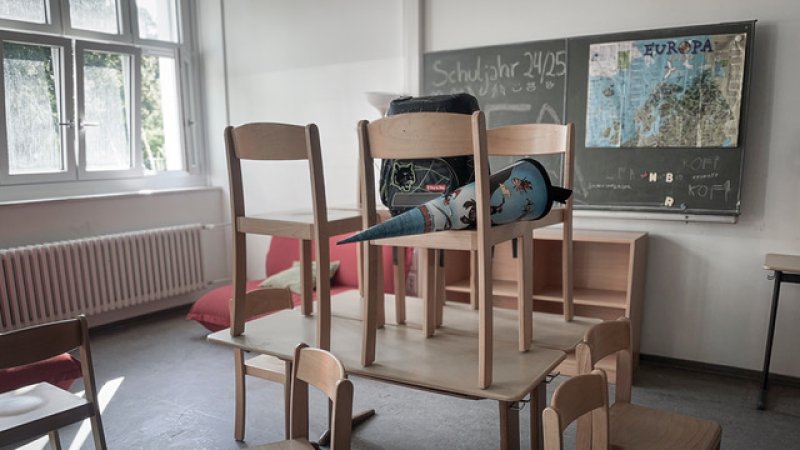There are three options in Berlin after elementary school: integrierte Sekundarschule, Gymnasium or Gemeinschaftsschule.
The elementary school in Berlin usually takes up to 6 years to accomplish. If your child wants to go to a Classical language High school or "Altsprachiges Gymnasium" (Latin and ancient Greek), then he/she usually should leave elementary school after the 4th grade. Exceptionally gifted children can finish the primary school after 4 or 5 years and immediately start secondary school. If your child has difficulty in the first two years of primary school, he/she may have to stay in elementary school for one year longer.
After the elementary school, parents decide which school their child should attend next. The current school usually recommend a secondary school they consider right for the student. There are three types of secondary school in Berlin:
- Integrierte Sekundarschule
- Gymnasium
- Gemeinschaftsschule
The Integrierte Sekundarschule starts with the 7th grade and students can graduate from it at the 9th, 10th or 13th grade. This is an all-day school, meaning that in the weekdays, the children stay in the school until 4 pm. They would be served lunch midday, and then the education continues in the afternoon. At an Integrierte Sekundarschule, your child can graduate with any of these three qualifications: the Berufsbildungsreife or erweiterte Berufsbildungsreife after nine years, the Mittleren Schulabschluss after ten years, and the Abitur after the 13th grade. Any of these school-leaving certificates are sufficient to start vocational training ("Ausbildung"), but if your child obtains an Abitur, he/she would be able to choose between vocational training and university education.
The Gemeinschaftsschule starts at the 5th class and continues up to the 9th, 10th or 13th class. Here, all children attend same classes from the first to the 10th or 13th class, regardless of what certificate they intend to obtain. In these schools, you do not have to rush to decide about the school-leaving certificate your child needs to go for. In a Gemeinschaftsschule, he/she would have all the options: the Berufsbildungsreife or erweiterte Berufsbildungsreife after 9th, Mittleren Schulabschluss after 10th grade, and the Abitur after the 13th grade. Any of these certificates are sufficient to start vocational training ("Ausbildung"). Children with a Mittleren Schulabschluss and good scores can also switch to a Gymnasium. Your child can enrol in a university only if he/she obtains an Abitur.
The Gymnasium starts with the 7th grade and continues for five years. After the 12th grade, your child can do his/her Abitur. In Gymnasiums, students have to study intensively and be very diligent and hardworking. They should also learn at least two foreign languages. Many Gymnasiums have particular focus areas such as science, music & arts, languages or sports. Students who leave the Gymnasium after the 9th or 10th grade often automatically obtain, respectively, the Berufsbildungsreife or erweiterte Berufsbildungsreife. With an Abitur, a student would be able to choose between vocational training and university education.
Once you've applied for asylum and obtained a residence permit or a temporary tolerated residence permit ("Duldung"), your child must go to school. You must first register your child in the coordinating office of your district's education office ("Schulamt"). On service.berlin.de, you can find the education office in your district. They will decide which school and class your child can attend. Their decision is based on the age and language skills of your child and a medical test. Once you have been notified of their decision, you can directly register your child at the designated school. Children who can't speak German are initially sent to special German courses.
The staff at your accommodation centre can assist you in the registration process.
You must register your child in the designated primary school (i.e. the nearest primary school to your home) during the first two weeks of October. During registration, your child will be examined by the school doctor, and his/her German language skills will be checked.
You can ask the staff in your child's kindergarten for advice regarding the registration process.
Information and regulations that apply in all federal states.
Schools in Germany
Education in Germany is regulated at the federal state level, meaning each of the 16 federal states has its school sy
